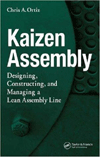Moving Forward: Startup Aims to Convert Fleets Into Hybrids
ALTe LLC believes it has a better idea for green vehicles: Convert existing gasoline-powered vehicles into hybrids.

Nam Thai-Tang, vice president of programs and purchasing of ALTe LLC, can’t pass up an opportunity to get in a dig at his competition.
“One of our people saw a Tesla roadster at a restaurant in Detroit,” he recalls. “The owner had to park the car on the sidewalk so he could run an extension cord inside the building.”
Thai-Tang believes his company has a better option for green vehicles: convert existing gasoline-powered vehicles into hybrids by retrofitting them with ALTe’s Range-Extended Electric Power Train (REEP).
Although Thai-Tang supports all-electric vehicles-he led the development team for the Tesla sedan-he believes they aren’t ready for the everyday driver. The problems, he says, are the variability of people’s driving habits and the lack of infrastructure to support electric vehicles. In other words, there aren’t yet enough places to plug in other than the driver’s home.
So in 2009, Thai-Tang and two other engineers launched ALTe to provide an alternative. Rather than design a new vehicle from scratch, their plan was to design a hybrid power train that could be retrofit into commercial fleet vehicles, such as taxis, shuttle buses and delivery trucks, that are powered by V-8 engines and are no longer under warranty.
“The fleet market is ideal because most of these vehicles have predetermined routes they follow every day,” says Thai-Tang. “Vehicle utilization rates are well-understood. You know how many stops the vehicles make, how many miles they go and what their load requirements are.”
To convert a fleet vehicle into a hybrid, a mechanic removes the exhaust system, fuel tank, filler tubes and engine. In their place, the mechanic installs ALTe’s electric drive assembly, as well as an accessory drive unit, a gas-powered generator, lithium-ion battery packs, and a new exhaust system and fuel supply.
Depending on vehicle size and usage, the retrofit can boost fuel economy by 80 percent to 200 percent. The battery packs provide 15 to 70 kilowatt-hours of energy, and the vehicle can travel 40 to 52 miles on a single charge. The generator will only run when the battery charge falls below a predetermined level.
With a potential market of more than 10 million vehicles, ALTe needed a big facility to meet demand, and that’s just what they got earlier this year. In April, the company christened a new 185,000-square-foot facility in Auburn Hills, MI. At full production, the facility will assemble 90,000 power trains per year and employ more than 300 workers.
The company originally occupied a small shop with just 1,000 square feet. In February, ALTe received a tax credit valued at $8.4 million over seven years from the Michigan Economic Development Corp. The company is also seeking a loan from the U.S. Department of Energy.
ALTe already has an order for 3,000 power train kits for airport shuttle buses. At the moment, however, it is assembling a few REEPs for use in test vehicles. So far, the company has retrofit several New York City taxis and some full-size pickups. “We are doing a lot of testing to make sure the vehicles meet customer requirements for durability, duty cycle, range, towing and payload,” says Thai-Tang. “We’re also checking performance in hot and cold weather.”
Since the REEP consists of components from outside suppliers, ALTe’s assembly line won’t look like a classic auto plant with robots and lots of heavy-duty equipment. “We’ll need conveyors, DC electric nutrunners and some lifting equipment,” he says.
Editor’s note: “Moving Forward” is a regular series profiling new or expanding assembly plants. If you know a facility that’s opening, growing or investing in new equipment, we’d like to hear about it. Send an e-mail to John Sprovieri, editor of ASSEMBLY, at sprovierij@bnpmedia.com, or call 630-694-4012.

Nam Thai-Tang, vice president of programs and purchasing of ALTe LLC, can’t pass up an opportunity to get in a dig at his competition.
“One of our people saw a Tesla roadster at a restaurant in Detroit,” he recalls. “The owner had to park the car on the sidewalk so he could run an extension cord inside the building.”
Thai-Tang believes his company has a better option for green vehicles: convert existing gasoline-powered vehicles into hybrids by retrofitting them with ALTe’s Range-Extended Electric Power Train (REEP).
Although Thai-Tang supports all-electric vehicles-he led the development team for the Tesla sedan-he believes they aren’t ready for the everyday driver. The problems, he says, are the variability of people’s driving habits and the lack of infrastructure to support electric vehicles. In other words, there aren’t yet enough places to plug in other than the driver’s home.
So in 2009, Thai-Tang and two other engineers launched ALTe to provide an alternative. Rather than design a new vehicle from scratch, their plan was to design a hybrid power train that could be retrofit into commercial fleet vehicles, such as taxis, shuttle buses and delivery trucks, that are powered by V-8 engines and are no longer under warranty.
“The fleet market is ideal because most of these vehicles have predetermined routes they follow every day,” says Thai-Tang. “Vehicle utilization rates are well-understood. You know how many stops the vehicles make, how many miles they go and what their load requirements are.”
To convert a fleet vehicle into a hybrid, a mechanic removes the exhaust system, fuel tank, filler tubes and engine. In their place, the mechanic installs ALTe’s electric drive assembly, as well as an accessory drive unit, a gas-powered generator, lithium-ion battery packs, and a new exhaust system and fuel supply.
Depending on vehicle size and usage, the retrofit can boost fuel economy by 80 percent to 200 percent. The battery packs provide 15 to 70 kilowatt-hours of energy, and the vehicle can travel 40 to 52 miles on a single charge. The generator will only run when the battery charge falls below a predetermined level.
With a potential market of more than 10 million vehicles, ALTe needed a big facility to meet demand, and that’s just what they got earlier this year. In April, the company christened a new 185,000-square-foot facility in Auburn Hills, MI. At full production, the facility will assemble 90,000 power trains per year and employ more than 300 workers.
The company originally occupied a small shop with just 1,000 square feet. In February, ALTe received a tax credit valued at $8.4 million over seven years from the Michigan Economic Development Corp. The company is also seeking a loan from the U.S. Department of Energy.
ALTe already has an order for 3,000 power train kits for airport shuttle buses. At the moment, however, it is assembling a few REEPs for use in test vehicles. So far, the company has retrofit several New York City taxis and some full-size pickups. “We are doing a lot of testing to make sure the vehicles meet customer requirements for durability, duty cycle, range, towing and payload,” says Thai-Tang. “We’re also checking performance in hot and cold weather.”
Since the REEP consists of components from outside suppliers, ALTe’s assembly line won’t look like a classic auto plant with robots and lots of heavy-duty equipment. “We’ll need conveyors, DC electric nutrunners and some lifting equipment,” he says.
Editor’s note: “Moving Forward” is a regular series profiling new or expanding assembly plants. If you know a facility that’s opening, growing or investing in new equipment, we’d like to hear about it. Send an e-mail to John Sprovieri, editor of ASSEMBLY, at sprovierij@bnpmedia.com, or call 630-694-4012.
Looking for a reprint of this article?
From high-res PDFs to custom plaques, order your copy today!






